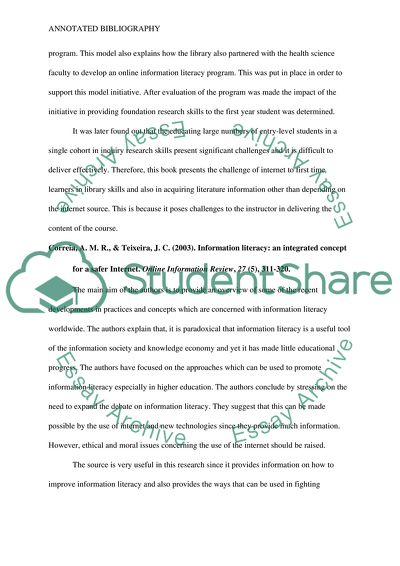Cite this document
(The Impacts of Internet on Information Literacy and Library Skills Annotated Bibliography, n.d.)
The Impacts of Internet on Information Literacy and Library Skills Annotated Bibliography. Retrieved from https://studentshare.org/information-technology/1798847-continution-of-annotated-biliography
The Impacts of Internet on Information Literacy and Library Skills Annotated Bibliography. Retrieved from https://studentshare.org/information-technology/1798847-continution-of-annotated-biliography
(The Impacts of Internet on Information Literacy and Library Skills Annotated Bibliography)
The Impacts of Internet on Information Literacy and Library Skills Annotated Bibliography. https://studentshare.org/information-technology/1798847-continution-of-annotated-biliography.
The Impacts of Internet on Information Literacy and Library Skills Annotated Bibliography. https://studentshare.org/information-technology/1798847-continution-of-annotated-biliography.
“The Impacts of Internet on Information Literacy and Library Skills Annotated Bibliography”. https://studentshare.org/information-technology/1798847-continution-of-annotated-biliography.


